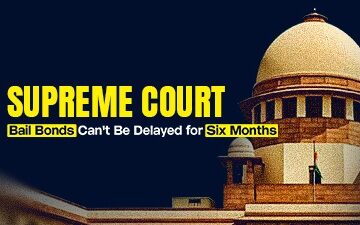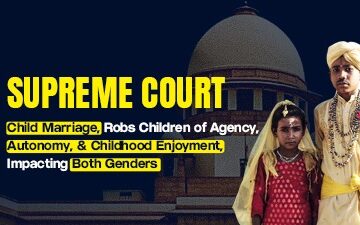In a significant ruling on October 21, the Supreme Court of India addressed an essential aspect of criminal trials concerning the admission of prosecution documents. The Court ruled that when the defence accepts the genuineness of prosecution documents under Section 294 of the Code of Criminal Procedure (CrPC) and waives the requirement for formal proof, the defence cannot later challenge those documents. The bench, comprising Justices Vikram Nath and Prasanna B. Varale, made it clear that such documents are to be considered substantive evidence.
What is Section 294 of the CrPC?
Section 294 of the Code of Criminal Procedure deals with the procedure for admitting documents during a criminal trial. It allows the defence and prosecution to admit the genuineness of documents and dispense with the requirement of calling witnesses to prove them.
Under sub-section (3) of Section 294 CrPC, if the genuineness of any document is not disputed, it can be read as evidence without proving the signature of the person who signed it. The Court has the discretion to demand proof of the signature if necessary, but this is generally not required if the document is admitted.
Key Takeaways from the Judgment
Once Admitted, Can’t be Disputed: When the defence admits prosecution documents as genuine and waives the need for formal proof, it cannot later seek to discredit those documents. This is especially important as such documents can be read as substantive evidence in the trial.
Role of the Defence: The court reiterated that it is the defence’s role to discredit the prosecution’s evidence during cross-examination. If the defence fails to challenge the credibility of the prosecution’s case at the appropriate stage, it cannot ask for a second chance later.
Public Documents and Evidence: In this case, the documents included police records, autopsy reports, and memos signed by public servants. The Court observed that these are public documents and, once admitted by the defence, they do not require further proof.
Supreme Court’s Verdict: The Supreme Court overturned the High Court’s decision, which had allowed the defence to cross-examine a witness again, stating that the defence had already admitted the documents. The Supreme Court clarified that the trial court was correct in relying on the documents since they were admitted by the defence as genuine.
The Impact of This Decision
This ruling emphasizes that Section 294 CrPC provides a streamlined process for admitting documents in a trial. By admitting documents without requiring formal proof, trials can be made more efficient. However, the ruling also underlines that once the defence admits a document’s genuineness, they cannot later seek to undermine its credibility.
The judgment in this case strengthens the principle that the defence must carefully consider their admissions in court. If they choose to admit the prosecution’s documents as genuine, they cannot later seek to reopen the matter. This ruling promotes judicial efficiency by reducing unnecessary delays caused by re-examining evidence that was already accepted by both parties.
Case Reference: Shyam Narayan Ram v. State of U.P.
In the case of Shyam Narayan Ram v. State of U.P., the Supreme Court set aside the High Court’s order, which had allowed the defence to re-cross-examine a witness after admitting the prosecution’s documents. The appeal was remitted back to the High Court, but the ruling firmly established that once admitted, prosecution documents cannot be challenged.
Conclusion
This landmark decision clarifies the implications of Section 294 CrPC and its impact on criminal trials. It sends a clear message to both prosecution and defence teams to be mindful of the legal consequences when admitting or challenging documents in court.
For the general public, this ruling reinforces the importance of understanding legal procedures, especially in criminal cases, where small decisions can significantly impact the outcome.


